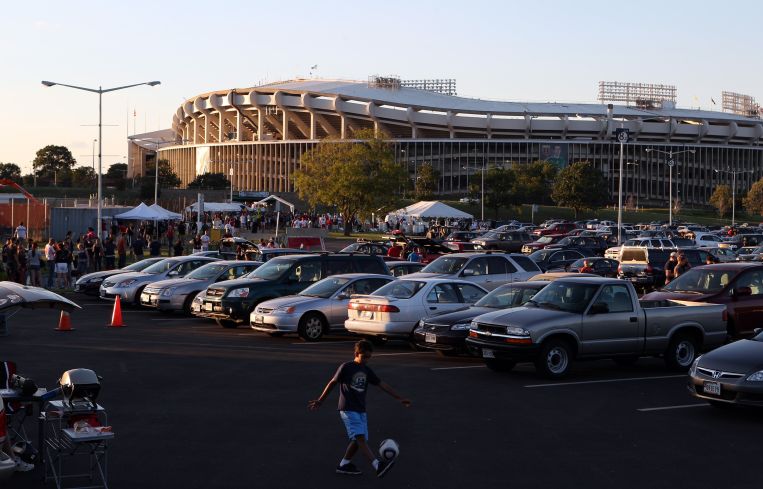Will City of DC Buy RFK Stadium? If So, Market Value Could Be Hard to Ascertain
By Nicholas Rizzi March 27, 2019 5:14 pm
reprints
A new bill would let the city of Washington, D.C., buy the 190-acre plot of land home to the Robert F. Kennedy Memorial Stadium from the federal government.
Rep. Eleanor Holmes Norton, the nonvoting member who represents D.C. in Congress, introduced the legislation yesterday for the sale, which she said would “strengthen the District’s ability to redevelop the site” by giving D.C. long-term control of the land and let it “consider options for additional green space affordable housing, commercial development and other enhancements.”
“Currently, the federal government gains no revenue from this site, nearly 90 percent of the 190-acre campus consists of parking lots, which do nothing to strengthen our local economy,” Norton said in a press release. “The D.C. government can make full use of this land for purposes that benefit the community and our economy.”
Under the current deal, D.C. leases the site from the U.S. Department of the Interior until 2038 but can only use it for recreation, stadiums or open space, according to Norton. The crumbling, almost 45,000-seat RFK Stadium has been mainly unused since the Major League Soccer team D.C. United ditched it in 2017 for Audi Field nearly three miles away.
However, figuring out what constitutes a “fair market value” for the site could be a headache for D.C. and the federal government because there’s no zoning attached to that land to allow construction of things like residential buildings or commercial offices, said Parker Lange, the corporate managing director for Savills’ D.C. office.
“Putting an actual number on there is going to be very difficult until it’s clear what is going to be allowed [by zoning] to be put on the site,” Lange said. “It’s going to be a very long process to come up with a fair market value, unless the government just wants to get rid of it.”
While Lange did not want to venture a guess on what buying the site could cost D.C., a seven-acre site nearly four miles away that Lange sold for a client went for just over $60 million in May 2018. However, Lange said the land in last year’s deal—the Sursum Corda housing community—had specific zoning in place for the Toll Brothers to step in to build a new 1,100-unit residential development.
If the area became zoned for residential and commercial, Lange said D.C. could expect to get plenty of interest from developers hoping to get a chance to redevelop it because of its proximity to the city center and its location along the Anacostia River.
“There would certainly be master developers that would be very interested in this site,” he said. “This is a large site and an important site for the city.”
D.C. lawmakers had their eyes on the RFK Stadium site for years, hoping to use it to build much-needed housing, recreational facilities and parks for the city, The Washington Post reported. Mayor Muriel Bowser has supported building housing on the land but has also publicly flirted with the idea it could become a new home for the Washington Redskins. In August 2018, she told the football team, which plays in Maryland, to “bring it home,” The Post reported.
Bowser declined to comment about the Redskins stadium through a spokeswoman but praised Norton’s legislation to sell the site to the city in a widely distributed statement.
“In our growing, thriving city, we cannot afford to let any land go to waste, and a national monument dedicated to asphalt benefits no one,” Bowser said in the statement. “Putting these 190 acres of land in the District’s hands ensures it serves the needs and desires of our residents. We as a city should decide for ourselves how this critical land is developed.”
The draft of Norton’s bill for the sale doesn’t mention a sports stadium and other local lawmakers have vowed to fight potential plans for the Redskins—which has been under fire for years over its offensive name—to build a new home on the site, The Post reported.



